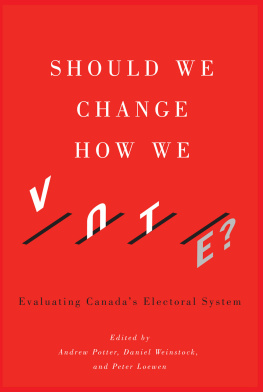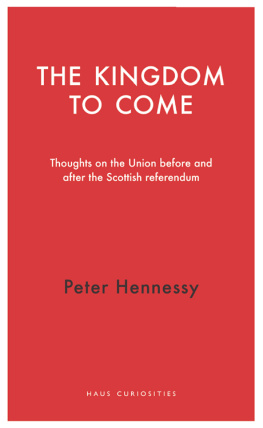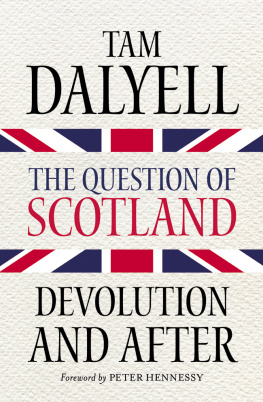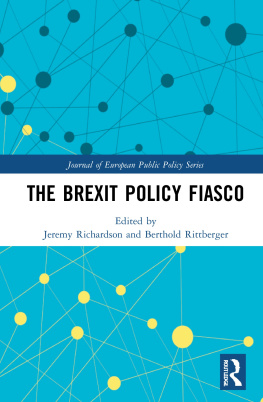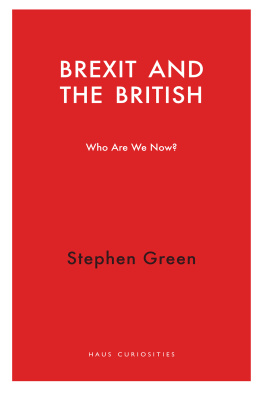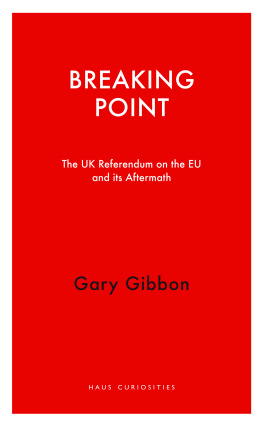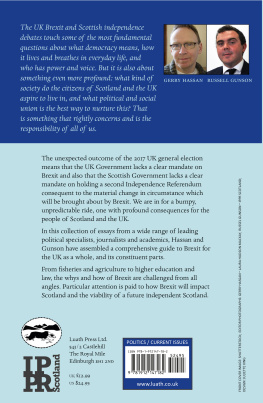Chris Nineham - How the Establishment Lost Control
Here you can read online Chris Nineham - How the Establishment Lost Control full text of the book (entire story) in english for free. Download pdf and epub, get meaning, cover and reviews about this ebook. year: 2017, publisher: John Hunt Publishing, genre: Politics. Description of the work, (preface) as well as reviews are available. Best literature library LitArk.com created for fans of good reading and offers a wide selection of genres:
Romance novel
Science fiction
Adventure
Detective
Science
History
Home and family
Prose
Art
Politics
Computer
Non-fiction
Religion
Business
Children
Humor
Choose a favorite category and find really read worthwhile books. Enjoy immersion in the world of imagination, feel the emotions of the characters or learn something new for yourself, make an fascinating discovery.

- Book:How the Establishment Lost Control
- Author:
- Publisher:John Hunt Publishing
- Genre:
- Year:2017
- Rating:5 / 5
- Favourites:Add to favourites
- Your mark:
- 100
- 1
- 2
- 3
- 4
- 5
How the Establishment Lost Control: summary, description and annotation
We offer to read an annotation, description, summary or preface (depends on what the author of the book "How the Establishment Lost Control" wrote himself). If you haven't found the necessary information about the book — write in the comments, we will try to find it.
How the Establishment Lost Control — read online for free the complete book (whole text) full work
Below is the text of the book, divided by pages. System saving the place of the last page read, allows you to conveniently read the book "How the Establishment Lost Control" online for free, without having to search again every time where you left off. Put a bookmark, and you can go to the page where you finished reading at any time.
Font size:
Interval:
Bookmark:

What people are saying about
How the Establishment Lost Control
An important and perceptive history of post-war Britain and the effects of neoliberalism. A critique with a robust philosophical basis, it explains where the inequalities that led us to this point originated, how they are being perpetuated, and how they can be deconstructed. Essential reading for anybody wishing to understand the state were in.
Brian Eno
This is a book to cheer you up. The games afoot. The old certainties are fading. The market doesnt work. Peoples lives are dominated by insecurity and pressures of all kinds. Can we bring together all who resist to make a real change? Chris Nineham argues for that possibility. It is a test not only of our determination, but also of our understanding..
Ken Loach
A highly readable, fast moving account of how the British establishment has lost the plot. Chris Nineham reveals, often using their own words, that they know they have, but they would rather you didnt hear it from him or listen to the solutions he and so many others now suggest.
Danny Dorling, author of Inequality and the 1%
A must read for anyone concerned with the state of our times, its historical antecedents and the possibilities of a different world.
Alpa Shah, author of In the Shadows of the State
A clear guide as to how the elite got us into this mess and why it cant get us out of it again, and it will stimulate debate as to how the left should respond.
Andrew Murray, author of The Imperial Controversy and Off the Rails
A provocative intervention into contemporary politics. Chris Nineham shows how 40 years of neoliberal capitalism resulted in accumulation by dispossession and the accumulation of discontent. The book makes an argument for socialism as the only adequate political response to the ongoing crises.
Christian Fuchs, author of Critical Theory of Communication and Reading Marx in the Information Age

First published by Zero Books, 2017
Zero Books is an imprint of John Hunt Publishing Ltd., Laurel House, Station Approach, Alresford, Hants, SO24 9JH, UK
www.johnhuntpublishing.com
www.zero-books.net
For distributor details and how to order please visit the Ordering section on our website.
Text copyright: Chris Nineham 2017
ISBN: 978 1 78535 631 5
978 1 78535 632 2 (e-book)
Library of Congress Control Number: 2017932040
All rights reserved. Except for brief quotations in critical articles or reviews, no part of this book may be reproduced in any manner without prior written permission from the publishers.
The rights of Chris Nineham as author have been asserted in accordance with the Copyright, Designs and Patents Act 1988.
A CIP catalogue record for this book is available from the British Library.
Design: Stuart Davies
Printed and bound by CPI Group (UK) Ltd, Croydon, CR0 4YY, UK
We operate a distinctive and ethical publishing philosophy in all areas of our business, from our global network of authors to production and worldwide distribution.
This short book is more of a collective effort than most. As far as I am aware, the case for the the emergence of the kind of deep economic, social and political crisis of British capitalism outlined here was first sketched out in detail by Adrian Cousins in his prescient article The Crisis of the British Regime, and in a rather different way by Danny Dorling in his path-breaking book Injustice. Thanks to both these authors for providing me with so much ammunition for the pages that follow. Many others have of course elaborated different aspects of the unfolding crisis since. I am in debt to many of them and in particular to all those on the editorial board of Counterfire.org whose running commentary on the regimes unravelling has been invaluable. I am lucky enough to work with a group of activists and analysts in the Stop the War Coalition whose insights into the increasingly volatile world we live in are always enlightening. Responsibility for all that follows is mine, I would like to give special thanks to Dave Randall, Des Freedman, Chris Bambery, Feyzi Ismail, Lindsey German and John Rees for their comments on early drafts. I dedicate the book to Feyzi Ismail, one of the most critical readers of drafts, who I love dearly.
The society of those in power really believes in its eternal duration.
Heinrich Heine
The British establishment is reeling. For years the elites have been behaving as if serious opposition to their plans had disappeared. Many commentators, including some on the left, internalised ruling class over confidence and worried that no alternative to the free market economic model could ever take hold of the popular imagination again. Elite consensus was equated with commanding authority and any challenge to that authority was judged hopeless. Now there is disarray. The people no longer seem enthralled by a future of endless globalisation. And they are not doing what they are told.
Instead they have delivered a series of shocks to the system. A narrow miss for Scottish independence in 2014, Jeremy Corbyns leadership bid, the Brexit vote and Labours spectacular June 2017 general election surge have generated the biggest crisis in British society since 1945. Consternation has grown as shocked commentators across the spectrum sought explanation for these upsets in the rise of xenophobia, populism or general unreason. Many took the Brexit vote in particular to express simply an outbreak of reactionary small mindedness amongst the white working class or a turn towards narrow protectionism. Even some of the more radical critics of the neoliberal order have tended to assume that a sudden fracturing of politics would automatically lead to a slide into political and cultural particularism and a society split by cultural and national difference.
The 2017 general election forced some to begin to recognize the roots of insubordination in a more rational rejection of an economic and political order. But there is still widespread wonderment. These multiple rebellions should not surprise. This short book argues they are expressions of a multi-level crisis in British society that has been germinating for decades. Popular anger has reached breaking point recently, but it never went away, even in the darkest times. For all the triumphalist rhetoric of Thatcher and her supporters, the majority of the population never signed up for the free market experiment and were never convinced by neoliberalism in action. For most, the Thatcher years were experienced as bleak and bitter, and in spite of the bribes and bullying, most continued to aspire to a more equal and caring society. Some on the left took the view that Thatcher had won hearts and minds, but at different times millions campaigned against her policies, and polls show that opposition grew even as the neoliberal regime bedded down. Thatchers staying power was more the product of defeat, demoralisation and disorientation than it was of any popular buy-in.
The subsequent history of neoliberalism is one of the steady accumulation of anger and alienation, barely registered in polite society. Rocketing inequality and deepening poverty have been recorded at the margins of public debate but rarely regarded as particularly significant because, for those in a position to comment publicly, they werent. Anger at venal politicians, anxiety about a disintegrating welfare state and outrage at a series of disastrous foreign wars has been briefly noted, but the official narrative always moves quickly on to less troublesome matters. More recent events have intensified indignation. The central idea of the whole paradigm that the market knows best took an absolute pummelling in the banking crisis of 2008. In that moment of panic, the authorities were unable to conceal that fact that their beloved market mechanisms took the whole economic system to the very edge of collapse. State neutrality was also exposed as a sham as, heaping insult upon injury, the champions of the small state responded to meltdown with massive state bailouts for the perpetrators of the crisis and used the shock to justify the launch of austerity. Not only had ruling class messaging gone haywire, not only had its whole economic project been exposed as a shocking failure, but it wasnt even contemplating a change of course. As the dust settled and life continued, a relieved media was content to recycle official disclaimers and carry on as if nothing much had happened.
Font size:
Interval:
Bookmark:
Similar books «How the Establishment Lost Control»
Look at similar books to How the Establishment Lost Control. We have selected literature similar in name and meaning in the hope of providing readers with more options to find new, interesting, not yet read works.
Discussion, reviews of the book How the Establishment Lost Control and just readers' own opinions. Leave your comments, write what you think about the work, its meaning or the main characters. Specify what exactly you liked and what you didn't like, and why you think so.


